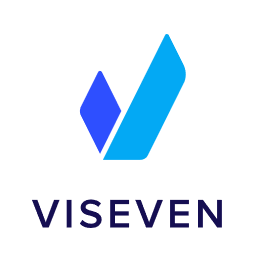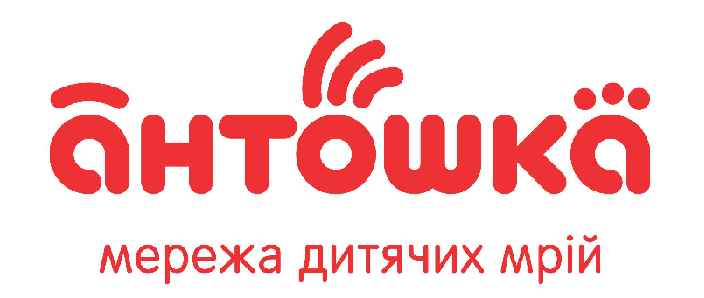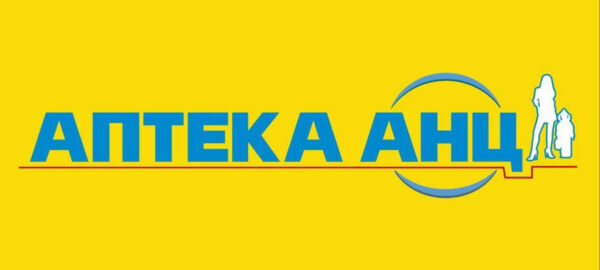
How to adapt employee training during a war and support the team? Kernel’s experience
The war changed everyone’s life, threw up new challenges and made adjustments to Ukrainian business. Managers had to transform work processes under extreme conditions and pay even more attention to supporting communication, motivation and team safety.
Valentyna Hrinchenko, head of the distance learning group, told us how Kernel adapted employees to the new conditions and what tools are used to support the team during the war.
 – Valentyna, tell us how do you help your employees adapt to the new reality?
– Valentyna, tell us how do you help your employees adapt to the new reality?
– Before the war, we invited a survival instructor who conducted the “Crisis Action Algorithm” training. During the first week, colleagues watched the webinar 700 times on the Kernel HUB. In the video the speaker explained complicated things for the perception of civilians: how to pack the necessary things, how to behave with the occupants at checkpoints, how to travel in a convoy and what to wear, how to pack an emergency bag, providing a menu layout and a list of medicines.

Unfortunately, the reality turned out to be much grimmer. Colleagues told me that they were guided by the speaker’s advice when evacuating from Irpin and Bucha.
Already a week after the war began, the first request to connect my colleagues to professional testing arrived in the mail. This served as a signal. It was morally difficult for everyone, but the work processes did not stop.
Webinars were organized to provide psychological support to colleagues:
- Practices of self-care and psychological resilience during war.
- Family, children and war. How to support each other
- Providing first aid
- Leadership and personal effectiveness during war
- Thinking different: how the skill of rethinking helps you adapt in a crisis
A webinar on medical care was attended by about a thousand colleagues.
Recently Valery Pekar conducted an interesting study, “The War for Independence. Ukraine after Victory”. Victoria Oleshko “Thinking different: how the skill of rethinking helps you adapt in a crisis”.

Colleagues flooded the chat room with questions. Most of us, like all Ukrainians, are worried about safety, health, jobs, and rebuilding the country after the victory.
LEARNING
– Do you think the issue of employee training is still relevant?
– E-learning is more relevant than ever. There is compulsory training, systematic knowledge testing, quality training, occupational health and safety training, and production training. At Kernel, colleagues continued to take courses to develop corporate competencies.
Plants, grain elevators, agro-sectors work, we all live and work during the war. If work doesn’t stop, neither do colleagues stop learning.
There is an increased demand to create new educational material: How to escape during artillery shelling, nuclear explosions. We want to spend more time creating courses on medical care, critical thinking, how to live under constant stress. But our focus has always been on industrial training. The main thing is to be useful to the business and our colleagues.

– How has the employee training process changed? What materials and activities are now a priority? What have you decided to give up and what have you added?
– In the first months we removed reminders about uncompleted tasks, extended the term of compulsory training. We are constantly looking for relevant and useful news for the homepage, we do more courses in microlearning format. We provide supportive feedback in the comments, we strive to make the learning trajectory environmentally friendly.
The training department lived on the Internet, looking for useful and interesting things, doing newsletters:
- how to entertain the children;


- which services have become free for Ukrainians;
- programs for learning languages;

- reminded of interesting courses and books from the corporate library;

- recommended developing Ukrainian content.
First of all, we think about the tasks of the business: to conduct training and testing before the audit, to teach colleagues the technological processes. More than 5 thousand colleagues during the war passed courses “Extraction”, “Refining”, “Filling and packing”, etc.


The company has an annual performance evaluation as planned. Colleagues are trained according to an individual development plan. Everyone has a year-long program of e-courses to develop their chosen corporate competencies: Responsibility, Willingness to Change, Collaboration, Systems Thinking, and Continuous Improvement and Distance Learning. Popular directions: working with MS Office products, agronomy, software, professional training, and Wellness.

The number of projects has been reduced. I continue to work on complex multi-module projects, but the main topics are production. We create almost all content by ourselves, making courses faster and more mobile. We use for creation existing materials. I creatively rethink them:)
I launched a bright course in public speaking that I planned before the war, almost 300 colleagues are studying, I do book chaplains, I produce a news digest and themed collections of audio books.

Alexander Zayom’s public speaking course
Before the war, I had not worked on material on how to save lives during artillery shelling and knew little about nuclear explosions. Now, unfortunately, I know a little bit about it. We develop new content only in Ukrainian.


COMMUNICATIONS
– How do you maintain communications with employees during martial law? What do you focus on? How does the learning portal help you do this?
– Our corporate communications are always at a high level. On the first day of the war we received a supportive letter from the CEO. HR colleagues helped with the field trip, housing arrangements, mobilization issues. We are always aware of the company’s charitable assistance and updates on legislation. We learn everything from the mail and the corporate portal.
For Kernel HUB, an educational portal, I try to find the most useful resources and tips for the newsfeed. I constantly make sure that materials are relevant: speeches of speakers, video recordings, new books, something interesting from the working sphere, free training, conferences. This is all the News section in the Kernel HUB. I try to respond quickly to comments and questions from colleagues. We try to support each other.

News Kernel HUB Chapter
Various tools are available in the LMS Collaborator to support communication with employees, including informing, receiving feedback, dialogue and communication.
Submit your application and try the LMS Collaborator communication tools now.
PSYCHOLOGICAL SUPPORT
– Do you pay attention to psychological support of employees in war conditions and what methods do you use?
– In the first months of the war, the company organized an online appointment with a psychologist, if desired. The individual sessions were very useful.

For the “Magic of the Morning” project, famous experts were invited every week: Yunona Lototska, Natalia Pavlova, Natalia Averina, Natalia Baikalova and others.

Worked through the topics: “How to keep your sanity and keep working”, “How to support each other in the family”, “How to help the body cope with constant stress”, “How to regain the ability to work effectively”. All of the webinars are uploaded to the CDS. You can watch them at your convenience. On average, we see about 300 views after a webinar.

The distance learning system has a Wellness section, popular courses on stress tolerance and work/life balance.

“If there is no e-learning, implement. It’s a lifeline, a guardian of the Learning Department in a time of war.”
– What advice can you give to companies that are at war? How can you help employees survive difficult times?
– I’m not objective, but keep e-learning professionals safe:) If there is no e-learning, then implement it. This is a lifeline, a guardian of the training department in time of war.
With the war, the workload, requests from colleagues for testing, training, and content creation increased considerably. Before the war, it was easier to work with contractors, there was the possibility of face-to-face training. Nowadays, being able to learn online in a safe place can save a life.
I can’t give advice, but simply share my approach:
- Use the experience
I looked at the content in the Knowledge Base. Most companies have a lot of useful material that can be used to create electronic programs. On the basis of webinars I do courses of medical assistance, mentoring. The main thing is to give the material to a specialist for revision, such courses require quality feedback.

- Search for information independently
I develop courses based on information from the Internet, there is already a lot of useful information there. Critically filter information, search, structure and ask experts to check. For example, the Red Cross of Ukraine has launched a Telegram channel with first aid recommendations: how to act in case of emergency in the war zone and in a safe place. The information was prepared on the basis of international IFRC recommendations. On the basis of the material, it is already possible to do a series of mini-courses, there are training videos, tests, and interactive tasks in the chat.
For the course “How to Save Yourself from a Nuclear Explosion” I searched the Internet for all the materials, videos and texts. About 700 colleagues took the course in the first week. They say they took it as a family. Such training reduces anxiety, takes you out of the “We’re all going to die” state. Spoiler – survival is quite possible.

- Communicate
For the course “How to survive during artillery shelling” I asked a friend who lives in Israel, forwarded the material from the application installed in every citizen’s phone. Subscribed to military experts, UNICEF Ukraine, collecting all the necessary stuff. I will share tips and videos in the course. So watched the dog Patron, I feel like a victim of advertising, I want a dog like that at home. For the first time in my life:)
- Store what’s useful
I started a “War” folder on my computer and phone, where I store everything useful that I see at once: videos, cartoons, animations, rescue algorithms. Such materials help to supplement courses as needed.
- Stick to your acquaintances
Our professional meetings with El’Lab mentors help me a lot. We also talk about work, support each other, and bore each other when my friend came in wearing an armored vest from duty. Last time we even had a book club. The professional circle allows you to look more broadly at processes, gives you inspiration, air, energy to create new things. I don’t even want to rule out zoom:)

El`Lab Mentors Meeting (organized by LMS Collaborator)
I also join themed classes and workshops.
From the last remembered topics on scenario planning by N. Pavlova, a meeting on “Knowledge Management: directions of development”. V.Oleshko. In the limited opportunities during the war I so get acquainted with people, listen to other opinions, write down ideas for future works. At one of the meetings, a military psychologist brought up the issue that society is not ready, does not know how to deal with the wounded and with disabilities. That was the impetus, I am also thinking about a webinar for colleagues, perhaps creating a course in the future.
- Make courses for your pleasure
After a recent meeting with mentor friends, I had the idea to create a course for colleagues on flexible thinking. How important it is for all of us to be able to change our perspective as needed and desired. And all after discussing Adam Kahane’s book. Interacting with the Enemy. How to work with people who inspire neither trust nor sympathy. I do the course a little at a time, on weekends, but it is important for me to create training and at will.
- Do volunteer work
Participate in projects where there is an opportunity to help. Most often I myself offer to help, here recalls everyone on their front. The main thing is to calculate the right time, so that there is strength and a long lead time for implementation.
- Work hard
I realized that working a lot now is my choice. I like sitting with my laptop from 9 a.m. to 9 p.m. I don’t feel bad about the collapse of my balance wheel. As long as I have the strength, desire, and ability I want to create studies that help me get through the terrible times.
If colleagues are safe, I recommend taking the training you’ve been planning for a long time but haven’t had the time: multi-module courses in Excel, PowerPoint, critical thinking, and others.
In times of war, we can’t travel, we can’t plan vacations, we are eaten up by thoughts of safety, our hands are drawn to the phone with the news all the time, and training is the best way to spend a free hour and take our minds off heavy thoughts in a useful way.
Serhiy Tymenko, head of the production training group:
 “The Kernel HUB has become our outpost for the entire learning ecosystem at Kernel. In the extraordinary conditions of war, we managed not only to maintain all the processes related to supporting the level of professional knowledge of the personnel, but also to find new opportunities for its development. Consequently, we transformed the planned topics into a more convenient and accessible format of microlearning our professional courses for production personnel, which is very important, since this category of people does not have corporate mail, but always has access to knowledge. The role of the platform becomes even more important for us, as in the near future we plan to use it in order to provide the business with the necessary knowledge as part of the retraining or expansion of personnel qualifications”.
“The Kernel HUB has become our outpost for the entire learning ecosystem at Kernel. In the extraordinary conditions of war, we managed not only to maintain all the processes related to supporting the level of professional knowledge of the personnel, but also to find new opportunities for its development. Consequently, we transformed the planned topics into a more convenient and accessible format of microlearning our professional courses for production personnel, which is very important, since this category of people does not have corporate mail, but always has access to knowledge. The role of the platform becomes even more important for us, as in the near future we plan to use it in order to provide the business with the necessary knowledge as part of the retraining or expansion of personnel qualifications”.
Organize staff support in an emergency environment with the LMS Collaborator corporate portal.



































